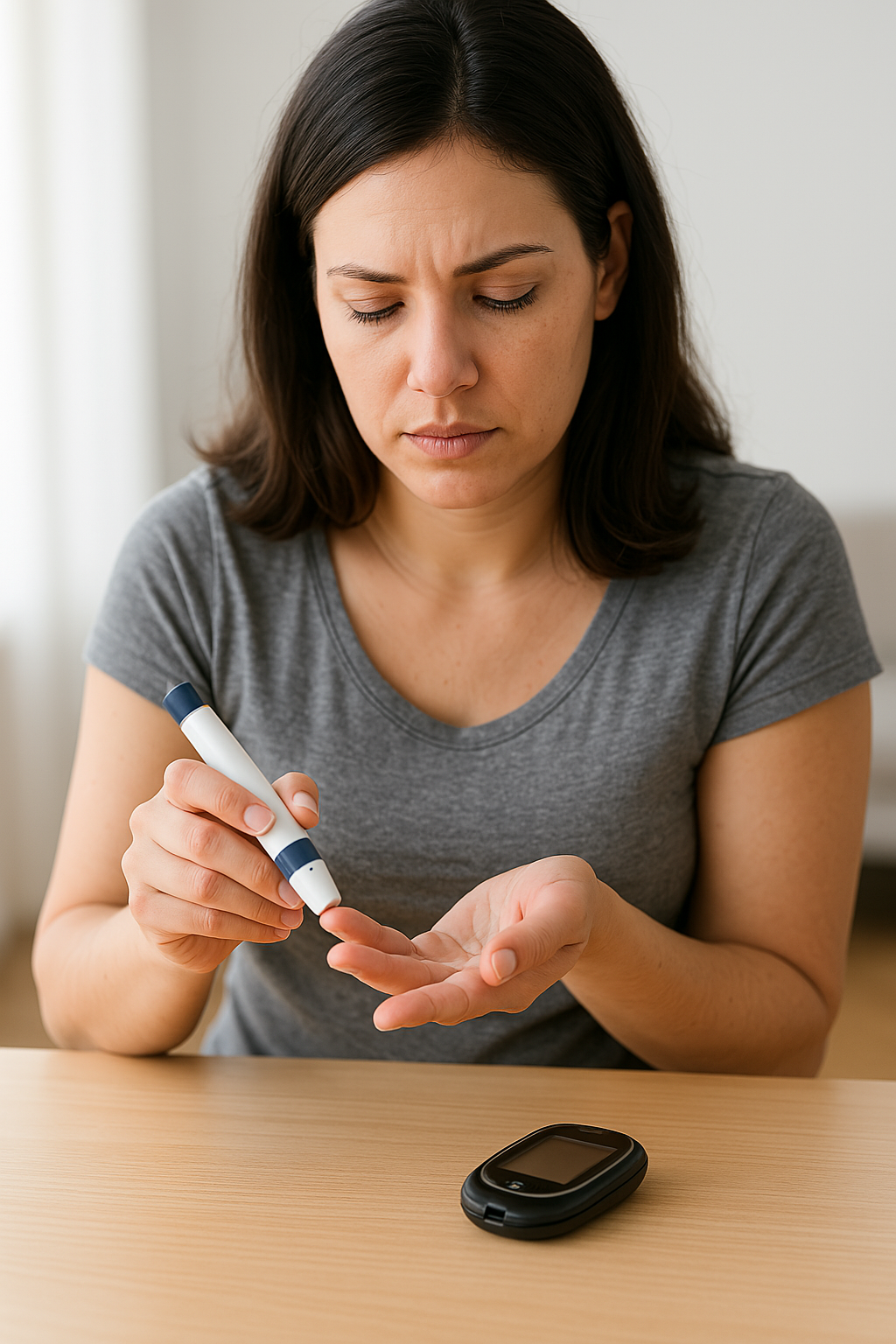Can Diabetes Affect Your Fertility?

Science-Based Insights for Men and Women Trying to Conceive
Diabetes mellitus is a long-term (chronic) metabolic disorder characterized by high levels of glucose (sugar) in the blood. When blood sugar is consistently high, it can lead to complications that affect various organs, including the heart, eyes, kidneys, and more. Additionally, diabetes is closely linked to fertility challenges and risks during pregnancy.
Many women with diabetes face questions and concerns when planning for a baby. Will it be dangerous for the baby or for me? Can complications be prevented? The good news is that with proper management, many of these risks can be reduced.
According to the Centers for Disease Control and Prevention (CDC), women with diabetes can have healthy pregnancies with the right preconception care and blood sugar control.
But it’s not just women—diabetes can affect fertility in men, too. Let’s break it down.
Both type 1 and type 2 diabetes can interfere with fertility in men and women. Poorly controlled blood glucose levels can reduce the likelihood of getting pregnant. In many cases, couples may turn to assisted reproductive technologies (ART) such as IVF to help achieve pregnancy.
Clinica Romero advises that individuals with diabetes planning a pregnancy should work closely with their healthcare team to stabilize blood sugar levels for at least 3–6 months before trying to conceive.
If you’ve been trying to get pregnant for over a year (or more than 6 months if you’re over 35), seeking guidance from a fertility specialist is highly recommended.
For women, uncontrolled blood sugar can negatively affect hormone production, leading to fertility challenges.
High blood glucose levels (hyperglycemia) can disrupt the balance of key reproductive hormones such as:
- Estrogen (estradiol)
- Progesterone
- Testosterone
These hormones play essential roles in ovulation and maintaining a healthy menstrual cycle. If they’re out of balance, it may become difficult to conceive.
The American College of Obstetricians and Gynecologists (ACOG) highlights that good glycemic control can help normalize menstrual cycles and improve ovulatory function.
Additional complications linked to diabetes in women include:
- Irregular menstrual cycles
- Polycystic ovary syndrome (PCOS)
- Amenorrhea (absence of menstruation)
- Early menopause
These conditions can further complicate the path to pregnancy but are often manageable with medical support.
Science-Based Insights for Men and Women Trying to Conceive
Diabetes mellitus is a long-term (chronic) metabolic disorder characterized by high levels of glucose (sugar) in the blood. When blood sugar is consistently high, it can lead to complications that affect various organs, including the heart, eyes, kidneys, and more. Additionally, diabetes is closely linked to fertility challenges and risks during pregnancy.
Many women with diabetes face questions and concerns when planning for a baby. Will it be dangerous for the baby or for me? Can complications be prevented? The good news is that with proper management, many of these risks can be reduced.
According to the Centers for Disease Control and Prevention (CDC), women with diabetes can have healthy pregnancies with the right preconception care and blood sugar control.
But it’s not just women—diabetes can affect fertility in men, too. Let’s break it down.
Both type 1 and type 2 diabetes can interfere with fertility in men and women. Poorly controlled blood glucose levels can reduce the likelihood of getting pregnant. In many cases, couples may turn to assisted reproductive technologies (ART) such as IVF to help achieve pregnancy.
Clinica Romero advises that individuals with diabetes planning a pregnancy should work closely with their healthcare team to stabilize blood sugar levels for at least 3–6 months before trying to conceive.
If you’ve been trying to get pregnant for over a year (or more than 6 months if you’re over 35), seeking guidance from a fertility specialist is highly recommended.
For women, uncontrolled blood sugar can negatively affect hormone production, leading to fertility challenges.
High blood glucose levels (hyperglycemia) can disrupt the balance of key reproductive hormones such as:
- Estrogen (estradiol)
- Progesterone
- Testosterone
These hormones play essential roles in ovulation and maintaining a healthy menstrual cycle. If they’re out of balance, it may become difficult to conceive.
The American College of Obstetricians and Gynecologists (ACOG) highlights that good glycemic control can help normalize menstrual cycles and improve ovulatory function.
Additional complications linked to diabetes in women include:
- Irregular menstrual cycles
- Polycystic ovary syndrome (PCOS)
- Amenorrhea (absence of menstruation)
- Early menopause
These conditions can further complicate the path to pregnancy but are often manageable with medical support.

